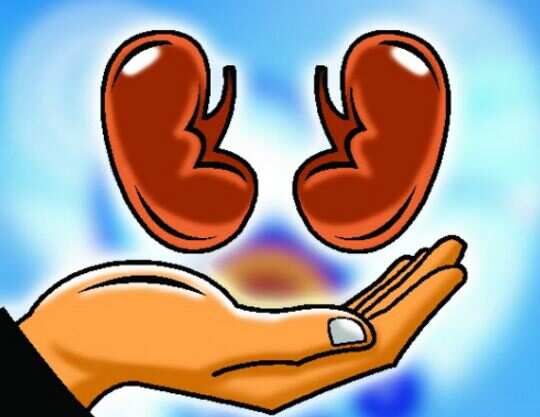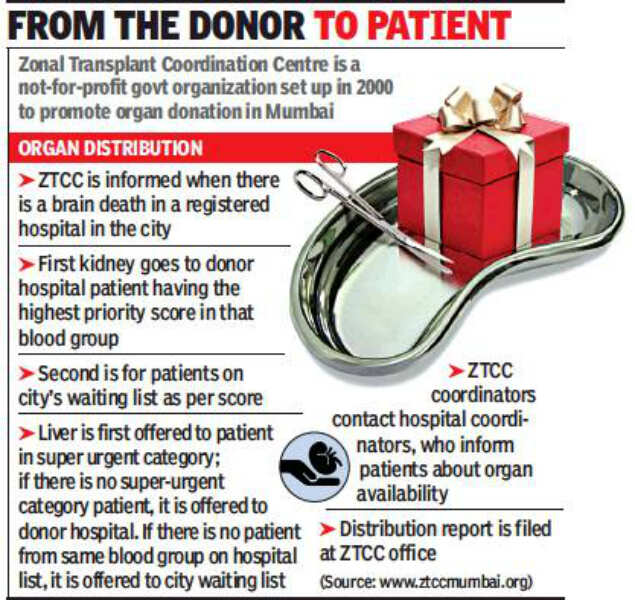
“If patients want to be registered in the recipient waiting list, they have to register online through the hospital of their choice,” said ZTCC president Dr Surendra Mathur. The online process was made mandatory 10 days back.

“We have also started the pilot run of an app to oversee distribution of organs that will be used by hospital-based transplant coordinators and ZTCC coordinators,” he added. The app’s pilot run started two days back and is likely to be mandatory within 10 days.
“We don’t want what is happening in live donations to happen with cadaver donations. These measures will increase transparency and reduce scope for manipulation,” said Dr Mathur.
More than a fortnight back, the Anti-Corruption Bureau (ACB) arrested Tushar Savarkar, a social worker at state-run JJ Hospital, and Sachin Salve, organ transplant co-ordinator with S L Raheja Hospital, Mahim, for allegedly demanding Rs1.5 lakh from a patient requiring a kidney transplant, to expedite permissions for the transplant. The patient approached ACB and paid Rs80,000 to Salve, paving the way for their arrest from JJ Hospital.
ZTCC oversees distribution of organs donated by cadaveric (deceased) donors at 30 hospitals registered for transplants in Mumbai. Distribution of organs is a process that could stretch from 24 to 48 hours.
The digitisation move, according to ZTCC, will increase transparency in organ distribution. At present, transplant coordinators have to start making calls to people on their hospital’s waiting list whenever a cadaver donor is available. There are no records of calls made, but the app will change that.
“The app is connected to our ZTCC software and it will record numbers called and the duration of calls,” he said.
While ZTCC’s computerbased distribution system has been praised for precision, the use of the app will “introduce further transparency”. It will prevent manipulation too. “The system is doing well but we want to take extra measures to remove scope for human error,” said Dr Mathur.